Missiles, ex-lovers, and mystery holes: Inside the weird scandal rocking US-Russian cooperation in space
Why the annexation of Crimea, Elon Musk, and a 2 mm hole in a Russian spaceship are causing friction between the US and Vladimir Putin
In 1975, an American Apollo spacecraft and a Russian Soyuz met in space, where crew members shook hands, cooked meals, and conducted joint science experiments. It was a sign that in space, despite tensions between the two nations on Earth, things could be different.
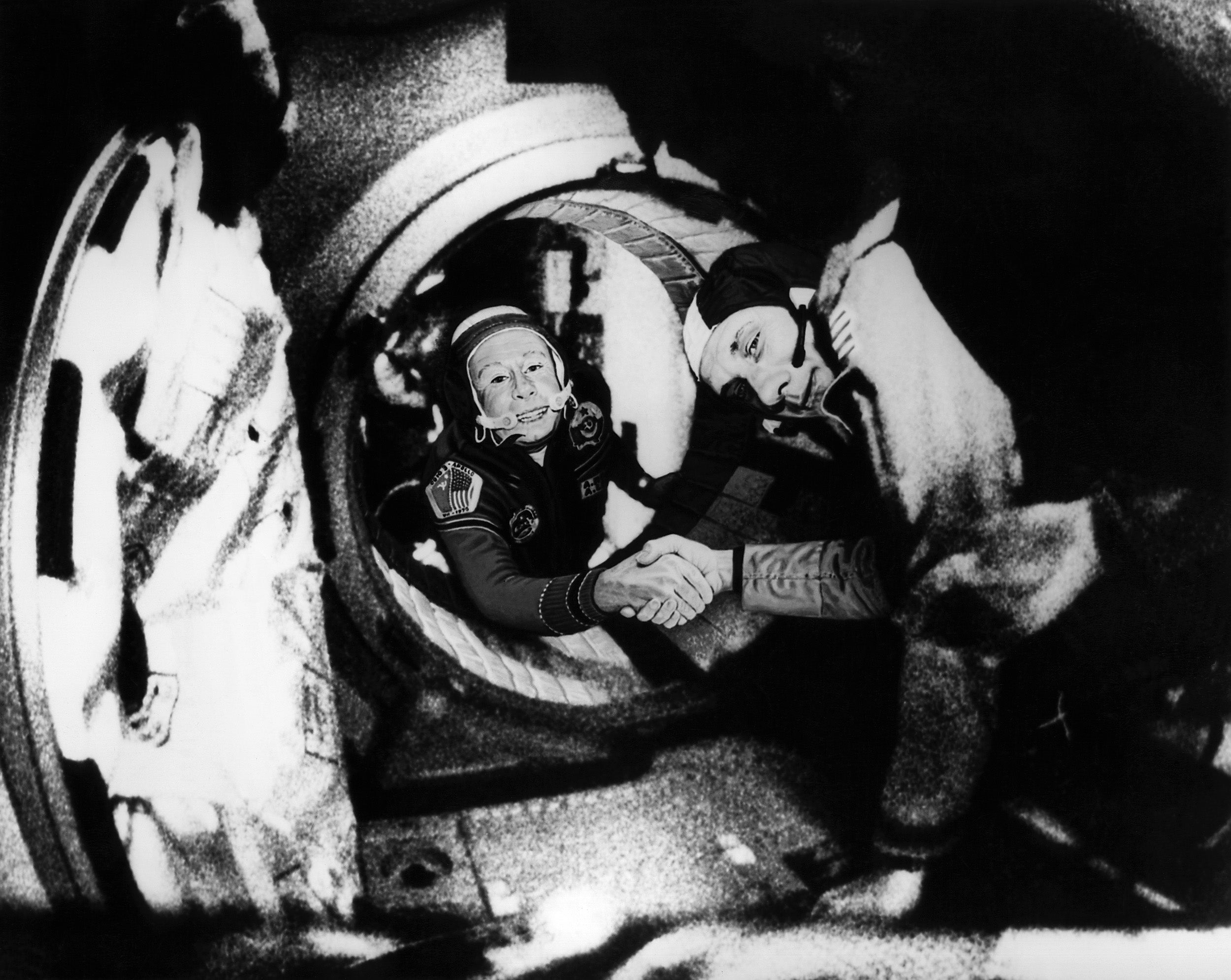
Those days feel long gone now, as a bizarre scandal involving a 2 mm hole in a Russia ship docked on the International Space Station in 2018 and rumours of bitter ex-lovers rock international space cooperation, exposing tensions that have lingered for years.
At the end of this November, Russia’s space agency Roscosmos announced it had completed an investigation into a 2 mm breach aboard a Soyuz MS-09 parked at the ISS in 2018, and had forwarded its nonpublic findings to law enforcement officials to weigh potential charges.
The breach, which was repaired without injury to any crew members, was a major embarrassment for the Russians, and rumours have spread in the Russian media ever since that a disgruntled NASA astronaut drilled the hole – allegations the US space agency has vigorously denied.
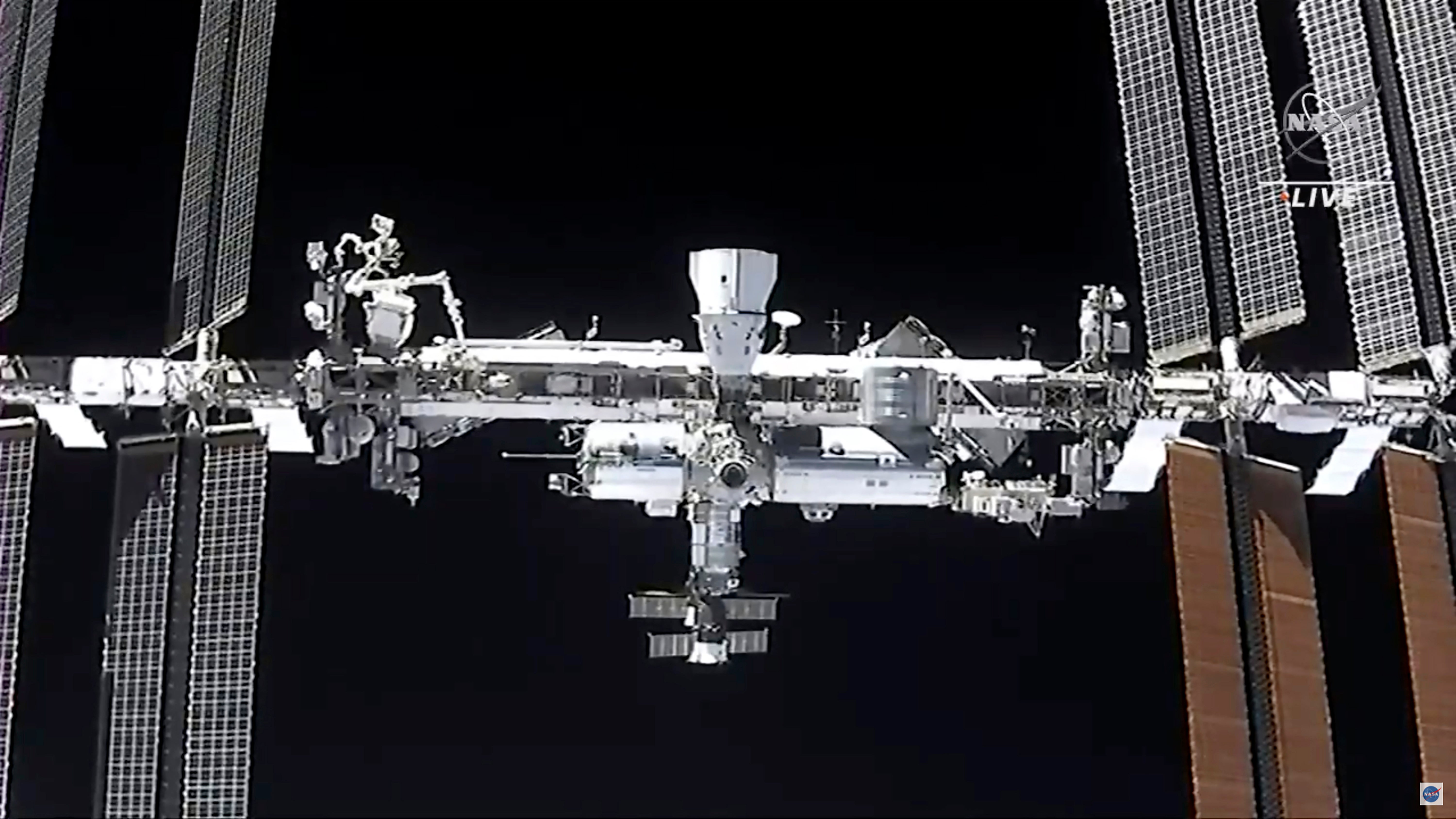
In April, the Russia state news agency TASS published accusations from an anonymous Russian space official that NASA astronaut Serena Auñón-Chancellor had drilled the hole because of an “acute psychological crisis” aboard the ISS and wanting to return home.
More recently, the Russia publication RIA Novosti reported rumours that the NASA explorer may have drilled the hole "due to stress after an unsuccessful romantic relationship with another crew member,” Ars Technica reported.
NASA, for its part, says none of this is true or even possible, because it knew the exact location of all its astronauts when the leak started, and no US personnel were nearby the Russian compartment on the space station.
"These attacks are false and lack any credibility," NASA Administrator Bill Nelson said in a statement. "I fully support Serena and stand behind all of our astronauts."
The Russian space agency said in 2019 it discovered the origin of the breach, but wouldn’t make its findings public.
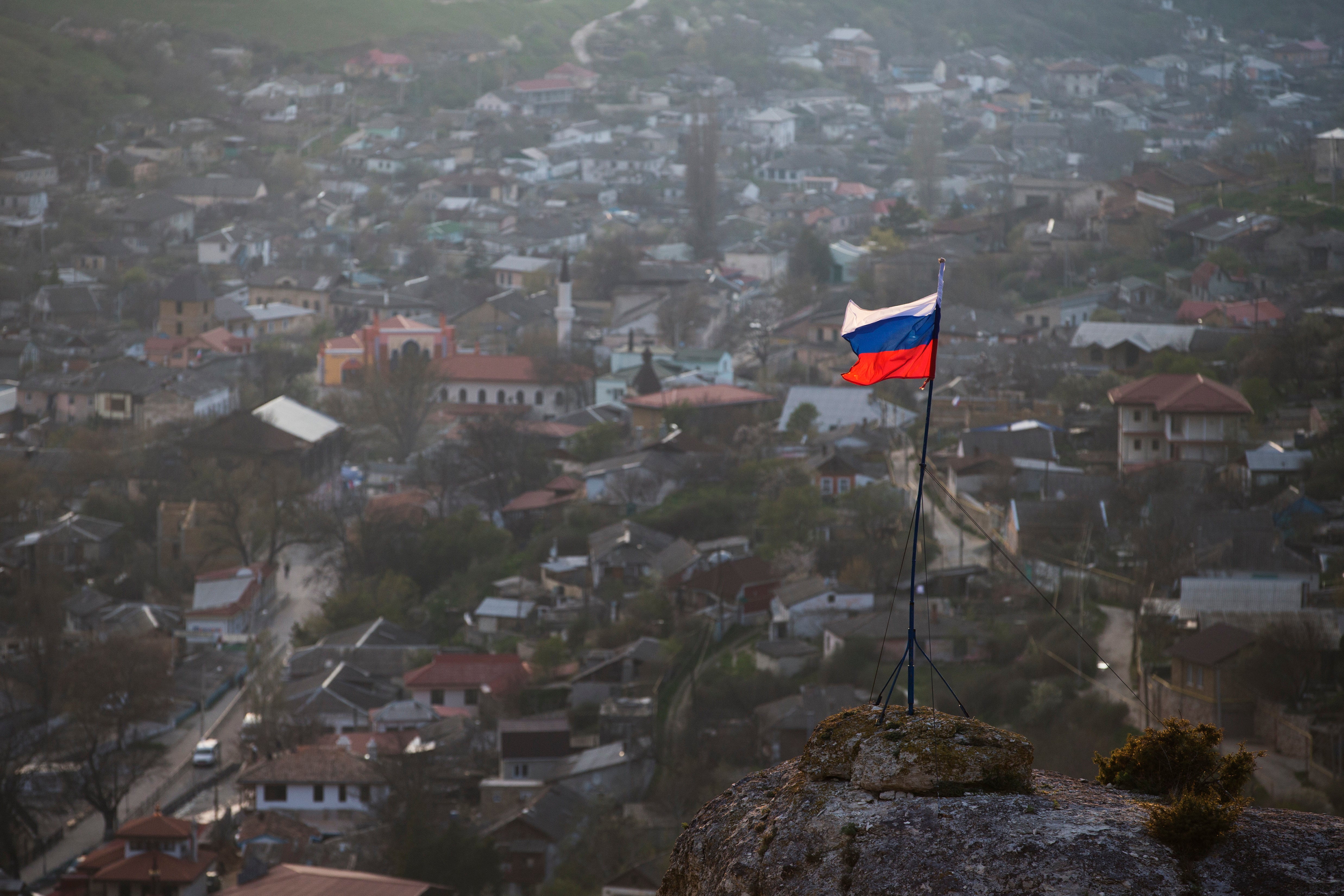
The US and Russia have been cordially cooperating in space and aboard the ISS for years, and officials recently renewed agreements to continue doing so until 2030, but relations have degraded considerably in the last decade.
Things began to sour in 2014, when Russia annexed Crimea from Ukraine, and the US responded by sanctioning various Russian officials and cutting Vladimir Putin out of certain international forums. The sanctions included limits on Russian industry, hampering the country’s space sector.
Dmitry Rogozin, then Putin’s deputy prime minister of defence, was among those sanctioned during the Crimea crisis, and he now heads Roscosmos.
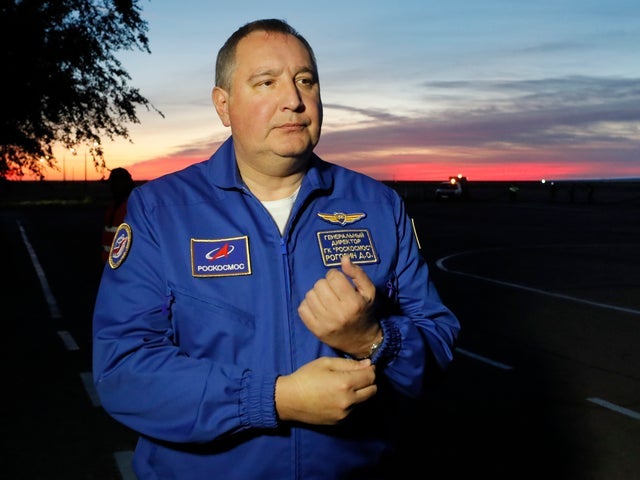
Shortly after the breach was discovered on the ISS, he fed speculation that it could’ve been sabotage, rather than the likely explanation that it was a manufacturing defect.
“What was it: a defect, or some intentional acts? Where were these acts carried out? On the Earth or already on the orbit?” he said in 2018. “Yet again, I am saying: We are not dismissing anything.”
There have been other issues as well, from Elon Musk’s SpaceX threatening Russia’s $80-million-a-seat hold on transportation to the ISS, to splits over how to continue lunar exploration, with Russia and China and the US and various nations forming two separate blocs.
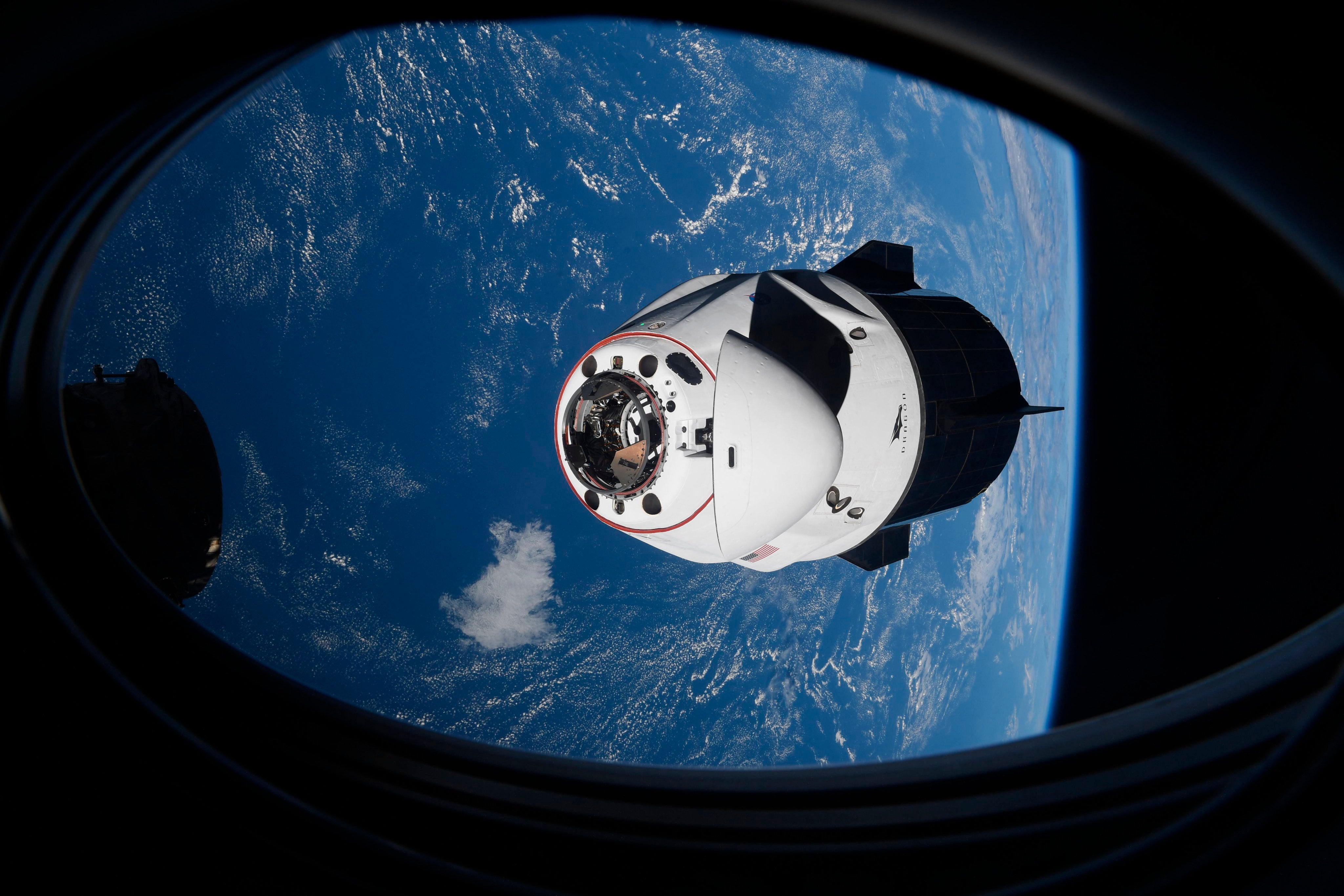
Most recently, Russia sent ISS astronauts scrambling to their spaceships when it tested an anti-satellite missile in November, sending 1,500 pieces of debris careening through orbit, which could threaten communications and mapping satellites, as well as astronauts.
"Russia has demonstrated a deliberate disregard for the security, safety, stability, and long-term sustainability of the space domain for all nations," US Space Command commander Gen James Dickinson said at the time, saying the test created debris that would “pose a threat to activities in outer space for years to come, putting satellites and space missions at risk, as well as forcing more collision avoidance maneuvers. Space activities underpin our way of life and this kind of behavior is simply irresponsible."
Taken together, these developments seem to represent the end of an era.
"We’re not going to see the same level of cooperation between the United States and Russia, compared to what we saw in the 1990s ... when Russia was broke, going through an economic catastrophe after the collapse of the Soviet bloc and was desperate," space policy expert Bleddyn Bowen told Axios.
The Russian space chief sees things differently.
"This is a family, where a divorce within a station is not possible," Dmitry Rogozin told CNN in September.
But even families can become estranged, and there are no greater distances than the ones found in space.
Join our commenting forum
Join thought-provoking conversations, follow other Independent readers and see their replies
Comments